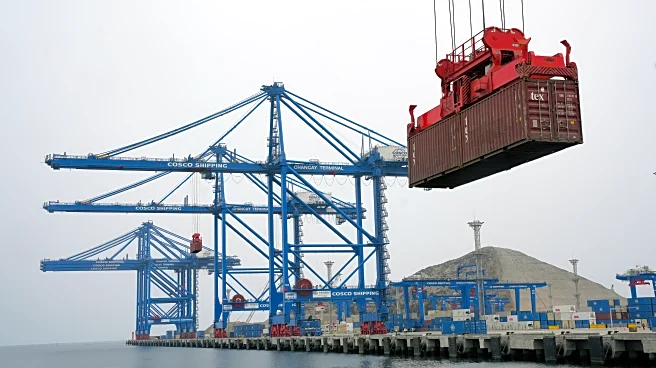Rapid Read • 6 min read
Gold is increasingly seen as a revolutionary asset against an expiring economic system characterized by monetary and fiscal policies that have favored the wealthy. The historical context of gold's role in economic transitions is highlighted by its performance during inflationary periods, such as the 1980s when it reached $875 per ounce. The current economic environment, marked by post-2022 macroeconomic themes, sees gold as a valuable asset amidst systemic challenges. The nominal gold price is considered overbought, similar to previous correction phases, yet it remains a symbol of value and monetary safety in uncertain times.
AD
Gold's significance as a stable asset is underscored by its ability to retain value amidst economic volatility. As the U.S. faces systemic challenges, including inflation and wealth disparity, gold offers a hedge against these uncertainties. The asset's enduring value appeals to investors seeking security in a potentially unstable economic future. The shift towards gold reflects broader concerns about the sustainability of current economic policies and the potential for significant changes in investor behavior.
The deeper implications of gold's role in the economy involve ethical and cultural dimensions, as it represents a challenge to the existing economic order. The reliance on gold highlights issues of wealth inequality and the need for a more equitable economic system. As investors increasingly turn to gold, it may signal a broader shift towards valuing assets that are not liabilities, promoting financial stability and ethical investment practices.
AD
More Stories You Might Enjoy











